Chinese Genocide in 1937-1945
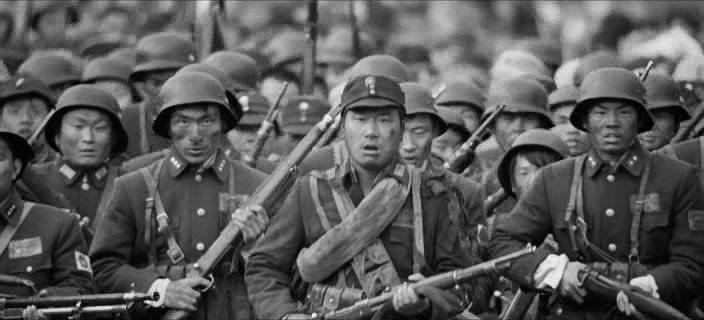
In the second half of the nineteenth century, China experienced a period of anarchy and collapse. The dynasty of the Qing emperors, the former descendants of the Manchurian horsemen, who arrived from the Amur north-eastern lands and seized Beijing in 1644, completely lost the warlike determination of their ancestors, without at all acquiring the love of their subjects. The largest empire, which at the end of the 18 century provided almost a quarter of world production, half a century later, having suffered defeats from the army of Western states, made new and new territorial and economic concessions. Even the proclamation of the republic during the Xinhai Revolution, which took place under calls for the restoration of former power and independence in the 1911 year, did not change anything in essence. The opposing generals divided the country into independent principalities, continuously fighting with each other. Control over the outskirts of the country was finally lost, foreign powers strengthened their influence, and the president of the new republic had even less power than the emperor had previously.
In 1925, Jiang Chung Cheng, known as Chiang Kai-shek, came to power in the nationalist party of the Kuomintang, which controlled the southwestern lands of China. After a series of active reforms that strengthened the army, he undertook a campaign to the north. Already at the end of 1926, the entire south of China came under its control, and the following spring, Nanjing (where the capital was moved) and Shanghai. These victories made the Kuomintang the main political force that gave hope for the unification of the country.
Seeing the strengthening of China, the Japanese decided to intensify their forces on the mainland. And there were reasons for this. The top of the Land of the Rising Sun was very unhappy with the outcome of the First World War. Like the Italian elite, Japan, after a common victory, saw itself deprived. Unresolved issues after military confrontation, as a rule, lead to a new struggle. The empire sought to expand living space, the population grew and new arable land, raw materials for the economy were required. All this was in Manchuria, where the influence of Japan was very strong. At the end of 1931, there was an explosion on the South Manchurian Railway belonging to Japan. Hiding behind the desire to protect their citizens, Japanese troops flooded Manchuria. Trying to escape from open conflict, Chiang Kai-shek brought the attention of the League of Nations to regain China’s legal rights and condemn the actions of the Japanese. A lengthy trial completely satisfied the conquerors. During this time, parts of the Kuomintang army were destroyed, the capture of Manchuria was completed. 1 March 1932 was announced the foundation of a new state - Manzhou-Guo.
Seeing the impotence of the League of Nations, the Japanese military are turning their attention to China. Taking advantage of anti-Japanese performances in Shanghai, their aviation inflicts a bombing attack on Chinese positions, and an assault force landed in the city. After two weeks of street fighting, the Japanese captured the northern part of Shanghai, but Chiang Kai-shek's diplomatic efforts give the result - the arrived ambassadors from the USA, England and France manage to stop the bloodshed and start negotiations. After a while, the League of Nations makes a verdict - the Japanese should get out of Shanghai.
However, this was only the beginning. At the end of 1932, Japanese troops added Renault to Manzhou-Guo, coming close to Beijing. In Europe, meanwhile, there was an economic crisis, growing tensions between countries. The West paid less attention to the protection of the sovereignty of China, which suited Japan, opening up vast opportunities for further action.
Back in 1927, in the Land of the Rising Sun, Prime Minister Tanaka laid out the “Kodo” memorandum (“Path of the Emperor”) to the emperor. His main idea was that Japan can and should achieve world domination. To do this, it will need to seize Manchuria, China, destroy the USSR and the USA, and form the "Sphere of Prosperity of the Great East Asia." Only at the end of 1936, the supporters of this doctrine finally won - Japan, Italy and Germany signed the Anti-Comintern Pact. The Soviet Union became the main opponent of the Japanese in the coming battle. Realizing that for this they need a strong land bridgehead, the Japanese organized a provocation for provocation on the border with China in order to find a reason for the attack. The last straw was the 7 July 1937 year of the year, near the Marco Polo Bridge, lying southwest of Beijing. Conducting night exercises, the Japanese soldiers began shooting at the Chinese fortifications. With response fire killed one person, which gave the aggressors the right to demand the withdrawal of Chiang Kai-shek's troops from the entire region. The Chinese did not respond to them, and on July 20, the Japanese launched a large-scale offensive, capturing Tianjin and Beijing by the end of the month.
Shortly thereafter, the Japanese launched attacks on Shanghai and Nanjing, the economic and political capitals of the Republic of China. In order to gain the support of the Western community, Chiang Kai-shek decided to show the whole world the ability of the Chinese to fight. All the best divisions under his personal guidance attacked the Japanese landing force, which landed in Shanghai at the end of the summer of 1937. He appealed to the inhabitants of Nanking not to leave the city. About a million people took part in the Shanghai massacre. Three months of continuous battles brought countless sacrifices. The Chinese have lost more than half of the personnel. And on December 13, the Japanese soldiers, without meeting resistance, occupied Nanjing, in which only unarmed civilians remained. For the next six weeks, an unprecedented slaughter was going on in the city, a real nightmare history as the "Nanking Massacre."
The invaders began by hammering twenty thousand men of military age with bayonets outside the city, so that they would never again be able to fight against them. Then the Japanese moved to the extermination of the elderly, women and children. The killings took place with a special atrocity. The samurai tore the eyes and hearts from living people, cut off the heads, turned the entrails out. Gunshot weapon did not apply. People were stabbed with bayonets, buried alive, burned. Before the murder of adult women, girls, old women were raped. At the same time, sons were forced to rape mothers, and fathers - daughters. Residents of the city were used as "stuffed" for training with a bayonet, hunted by dogs. Thousands of corpses sailed along the Yangtze, making it difficult for ships to stick to the banks of the river. The Japanese had to use the floating dead as pontoons to get on ships.
In 2007, documents came to light from an international charity that worked in Nanjing at the time. According to them, as well as the records confiscated from the Japanese, it can be concluded that more than 200 000 civilians were killed by soldiers in twenty-eight massacres. About 150, 000 people were destroyed individually. The maximum number of all victims reaches 500 000 people.
The remaining Europeans in Nanking, mostly missionaries and businessmen, tried to save the local population. They organized an international committee, which was headed by Jon Rabe. The committee fenced a plot called the “Nanking Security Zone”. Here they managed to save around 200 000 Chinese citizens. A former member of the Nazi Party, Rabe managed to secure the status of immunity from the temporary authority of the Security Zone.
The Japanese authorities still do not want to officially recognize the fact of the massacre, finding the data on the victims too high. They never apologized for the war crimes committed in China. According to their data in the winter of 1937-1938, the “total” 20 000 people died in Nanking. They deny calling the incident a "massacre," saying that it was Chinese propaganda aimed at humiliating and insulting Japan. In their school history textbooks it is simply written that “many people died in Nanking”. Photos of massacres in the city, which are indisputable evidence of nightmares of those days, according to the Japanese authorities are fakes. And this is despite the fact that most of the photographs were found in the archives of Japanese soldiers, taken as memorable souvenirs.
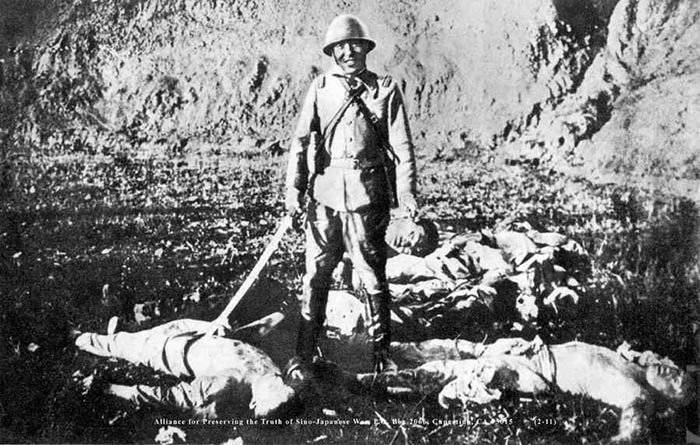
Chinese women forced into prostitution or raped appealed to the Tokyo authorities for compensation. A Japanese court replied that the corresponding verdict could not be rendered due to the limitation period of the crime.
In the spring of 1938, the Japanese finally suffered their first defeat, near Tayerzhuang. They failed to take the city and lost more 20 000 people. Having retreated, they shifted their attention to Wuhan, where the government of Chiang Kai-shek was located. Japanese generals believed that the seizure of the city would lead to the surrender of the Kuomintang. However, after the fall of Wuhan 27 in October, 1938-th capital was transferred to Chongqing, and the stubborn Kai-shek still refused to give up. To break the will of the battling Chinese, the Japanese began bombing civilian targets in all unoccupied major cities. Millions of people were killed, injured or left without a roof.
In 1939, both in Asia and in Europe there was a premonition of a world war. Understanding this, Chiang Kai-shek decided to win time to hold out until the hour when Japan fought with the United States, which looked very likely. Future events have shown that this strategy was correct, but in those days the situation looked like a stalemate. The Kuomintang's major offensive in Guangxi and Changsha ended without success. It was clear that there would be only one outcome: either Japan would intervene in the war in the Pacific, or the Kuomintang would lose control over the remnants of China.
Back in 1937, an advocacy campaign began to create good feelings for Japan among the Chinese population. The goal was to strike at Chiang Kai-shek’s regime. In the beginning, the inhabitants of some places really met the Japanese as brothers. But the attitude towards them very quickly changed directly to the opposite, because Japanese propaganda, like German, too strongly convinced its soldiers in their divine origin, which gives superiority to other peoples. The Japanese did not hide their arrogant attitude, looking at foreigners, as second-rate people, like cattle. This, as well as heavy labor service, quickly militias the inhabitants of the occupied territories against the "liberators". Soon the Japanese had barely controlled the occupied land. There were not enough garrisons, only the cities, key centers and important communications could be controlled. In the countryside, partisans were in full swing.
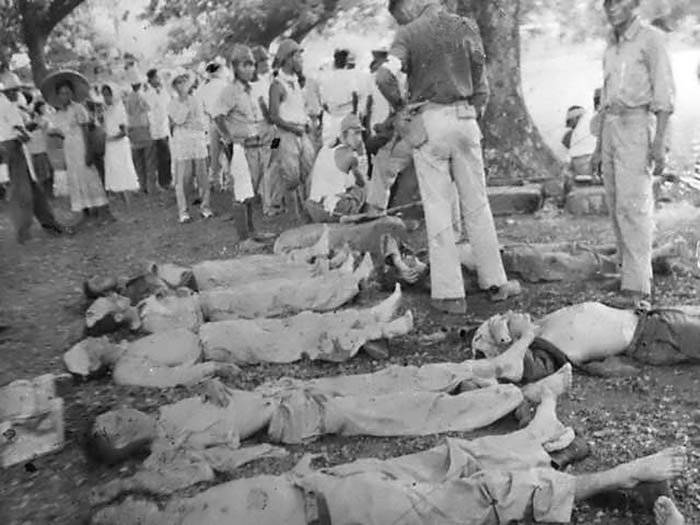
The invaders answered the actions of partisan detachments by sweeping the territories. In the summer of 1940, General Yasuji Okamura, who headed the North China Army, came up with a truly awesome strategy called Sanko Sakusen. In translation, it meant “Three All”: burn everything, kill everything, rob everything. Five provinces - Shandong, Shanxi, Hebei, Chahar and Shaanxi were divided into sections: "peaceful", "semi-peaceful" and "non-peaceful." The troops of Okamura burned whole villages, confiscated grain and drove the peasants to work on digging trenches and building many kilometers of roads, walls, towers. The main goal was to destroy the enemies pretending to be local, as well as all men from fifteen to sixty, behaving suspiciously. Even Japanese researchers believe that about ten million Chinese were enslaved by their army in this way. In 1996, scientist Mitsuoshi Himeta made a statement that the Sanko sakusen policy led to the death of two and a half million people.
By the middle of 1940, it became quite clear that the undeclared war in China would take a long time. Meanwhile, the Führer in Europe subjugated one country after another, and the Japanese elite was drawn to join the division of the world. The only difficulty they had caused the direction of the blow - southern or northern? From 1938 to 1939, the battle near the Khalkhin Gol River and Lake Hassan showed the Japanese that there would be no easy victory over the Soviet Union. 13 On April 1941, the Soviet-Japanese neutrality pact was concluded. And even without paying attention to the insistent demands of the German command after 22 June, its conditions were not violated. By this time, the Japanese army had firmly decided to fight with the United States, freeing the Asian colonies of European states. An important reason was the ban on the sale of fuel and steel to the Japanese, proposed by the United States to its allies. For a country that does not have its own resources, this was a very tangible blow.
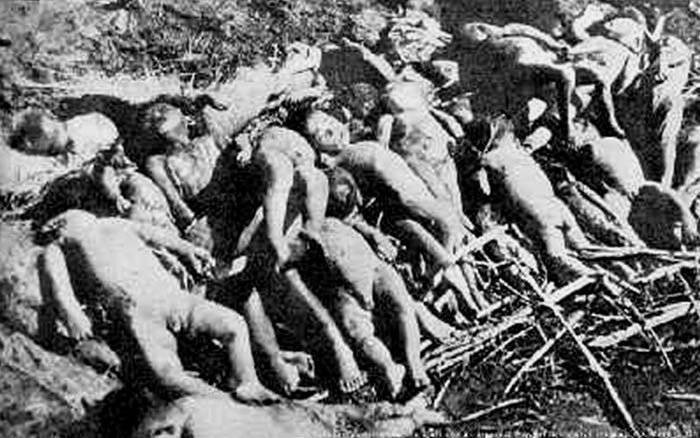
On December 7-8, 1941, Japanese aircraft bombed Pearl Harbor, the base of the US Navy fleet on the island of Oahu. The very next day, Japanese aircraft attacked British Hong Kong. On the same day, Chiang Kai-shek declared war on Italy and Germany. After four years of struggle, the Chinese got a chance to win.
The European allies help China came in very handy. They shackled the maximum number of Japanese armed forces, and also helped on neighboring fronts. After the Kuomintang sent two divisions to help the British in Burma, President Roosevelt explicitly announced that after the end of the war, four countries should control the world - the USA, the USSR, the United Kingdom and China. In practice, of course, the Americans ignored their eastern ally, and their leadership tried to command the headquarters of Chiang Kai-shek. Nevertheless, the fact that after one hundred years of national humiliation China was called one of the four main powers of the planet was very significant.
The Chinese coped with their task. In the summer of 1943, they retained Chongqing and launched a counterattack. But, of course, the Allies brought them the final victory. Nuclear bombs fell on Hiroshima and Nagasaki 6 and 9 on August 1945. In April, the Soviet Union tore up the neutrality pact with Japan and in August entered Manchuria. The nuclear bombing and the record-breaking offensive of the Soviet troops made it clear to Emperor Hirohito that it was useless to continue to resist. 15 August he announced on the radio about the surrender. It must be said that few people expected such a development of events. Americans generally assumed that hostilities would last until 1947-th year.
On September 2 on board the US battleship Missouri, the representatives of Japan and the Allied countries signed an act of unconditional surrender of the Japanese armed forces. World War II is over.
Unfortunately, the war continued in China. From 1945-th to 1949-th year there was an armed struggle for power between the accumulated forces of the Communists and the troops of Chiang Kai-shek. The more battles Mao's troops won, the more significant was the help from Moscow. Finally, on October 1 of 1949, the People’s Republic of China was established, and the Kuomintang led by Chiang Kai-shek was evacuated to Taiwan. The war, which lasted several decades, ended. For both China and Taiwan, a completely new story began at that moment.
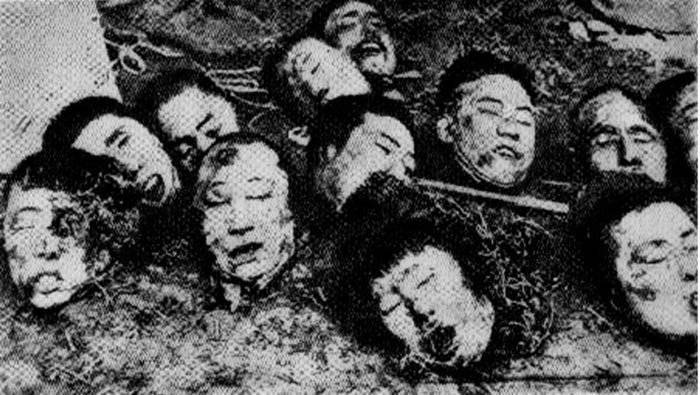
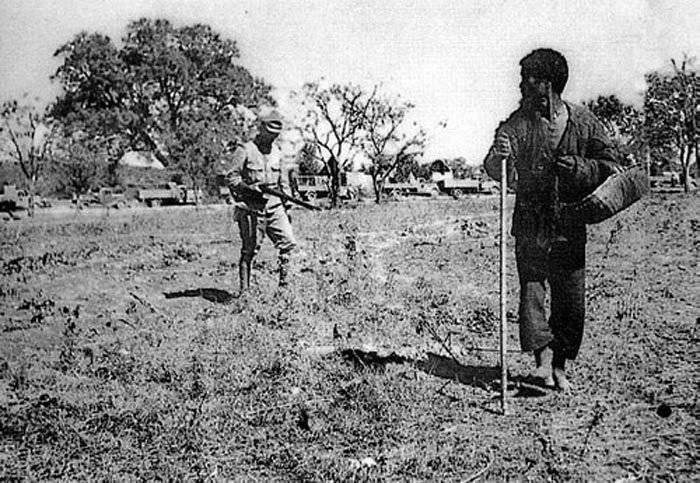
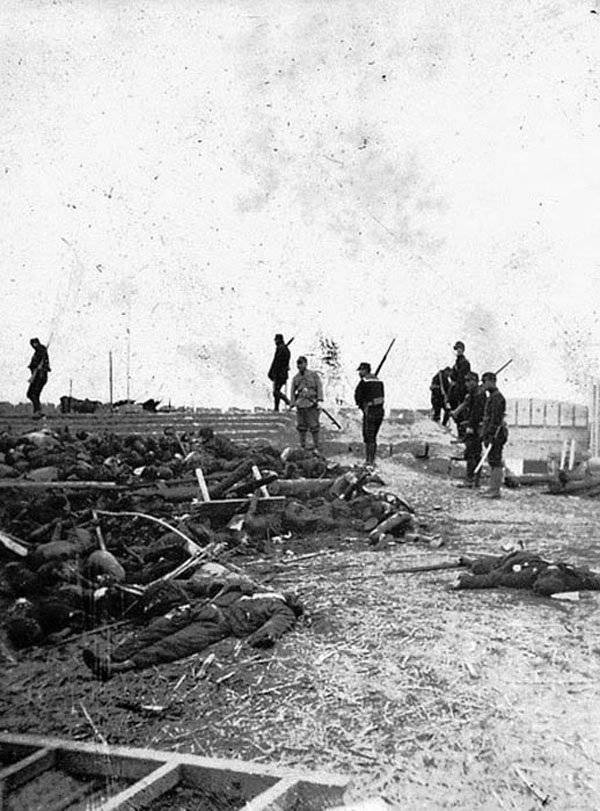
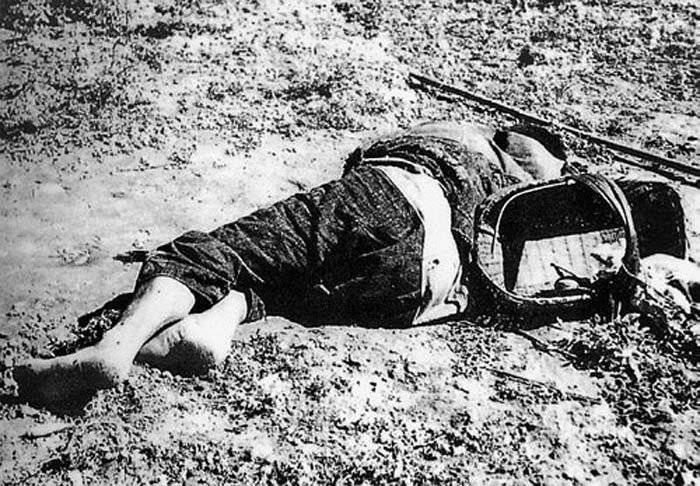
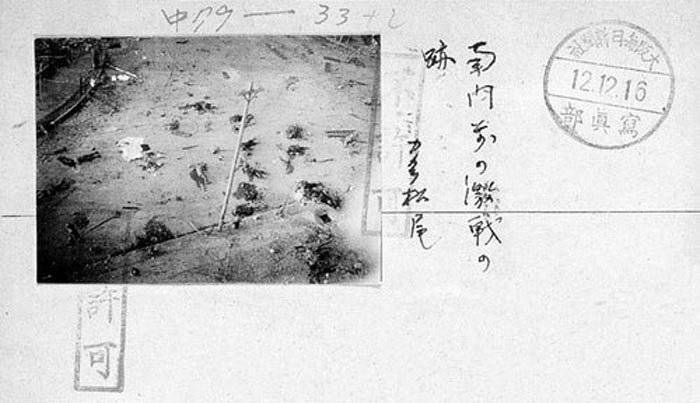
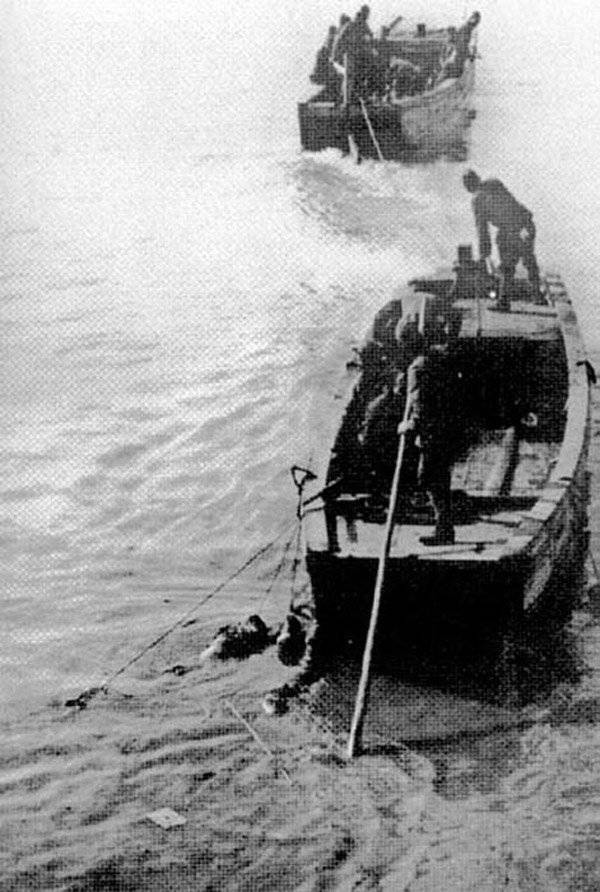
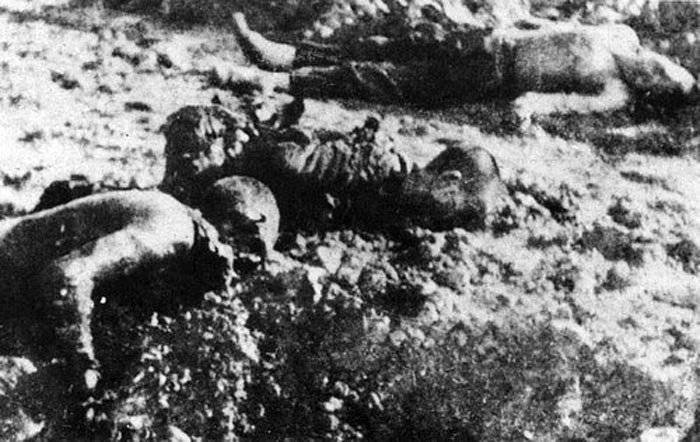
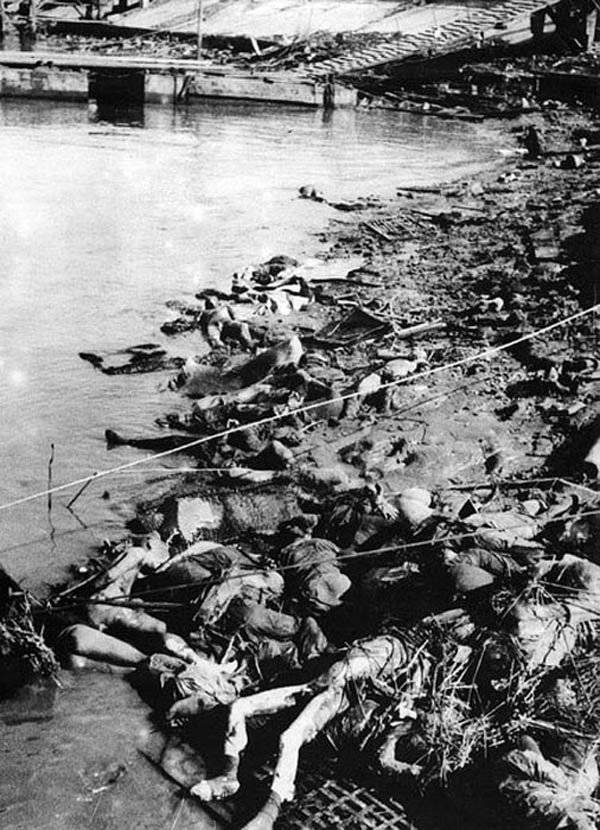
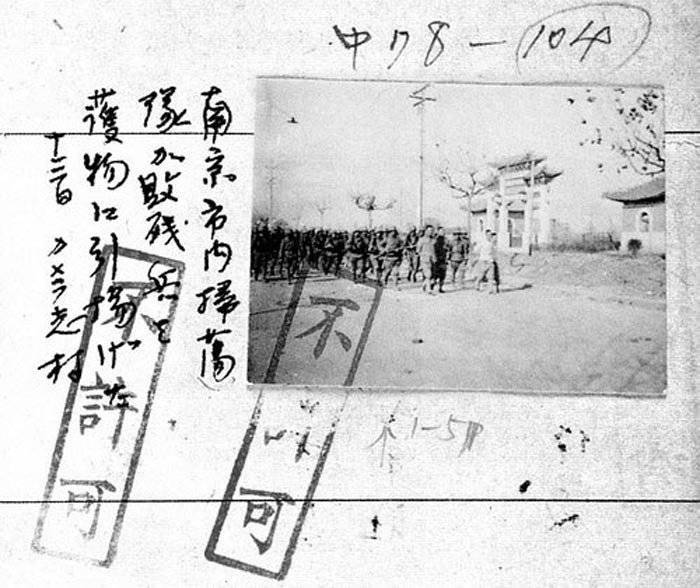
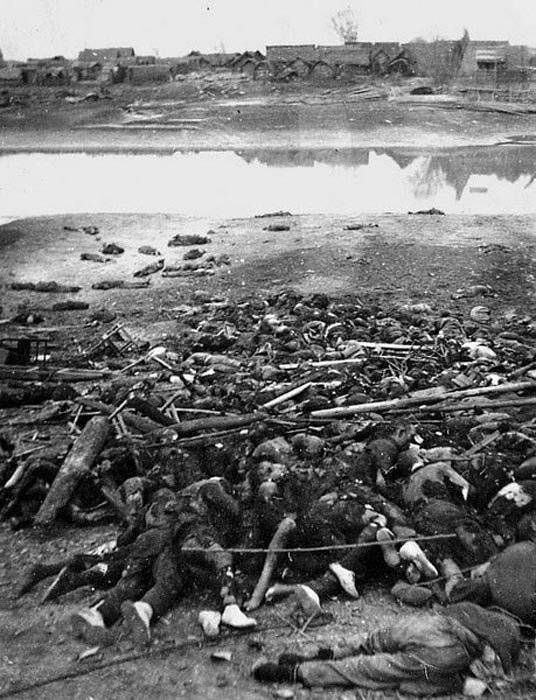
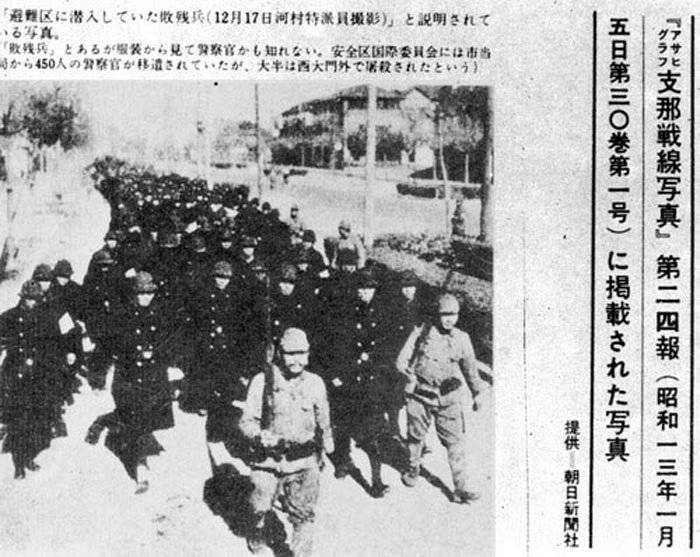
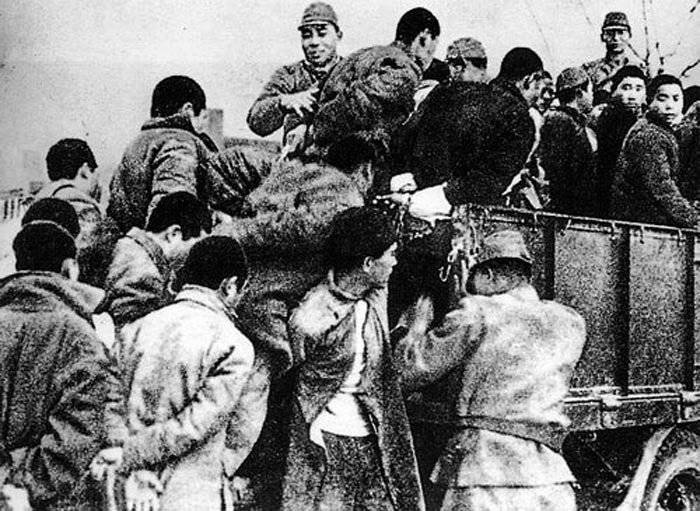
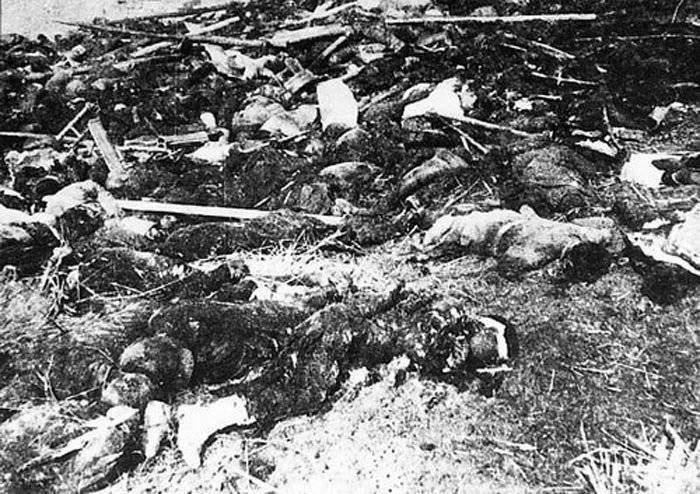
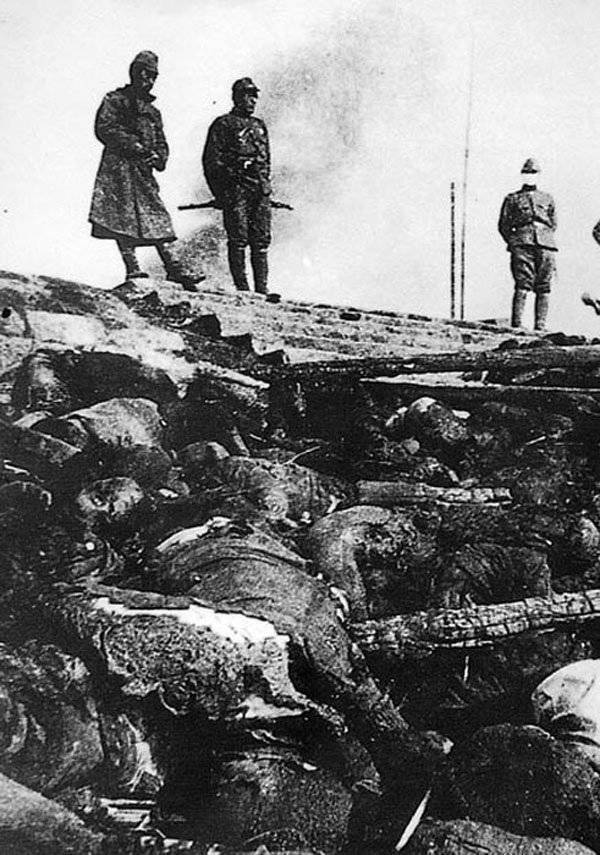
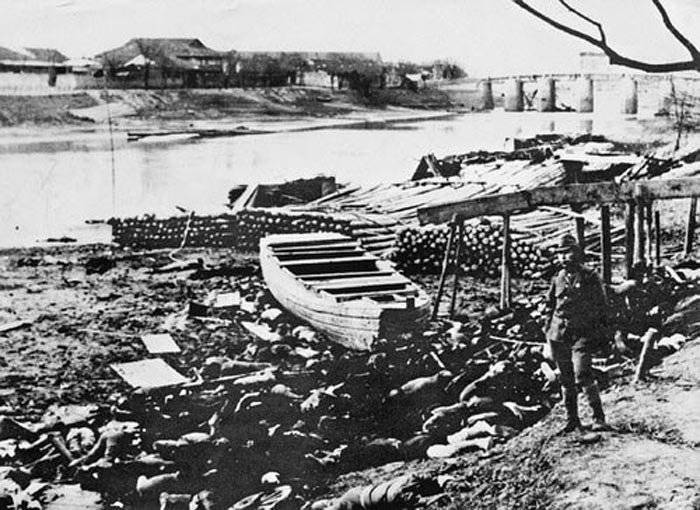
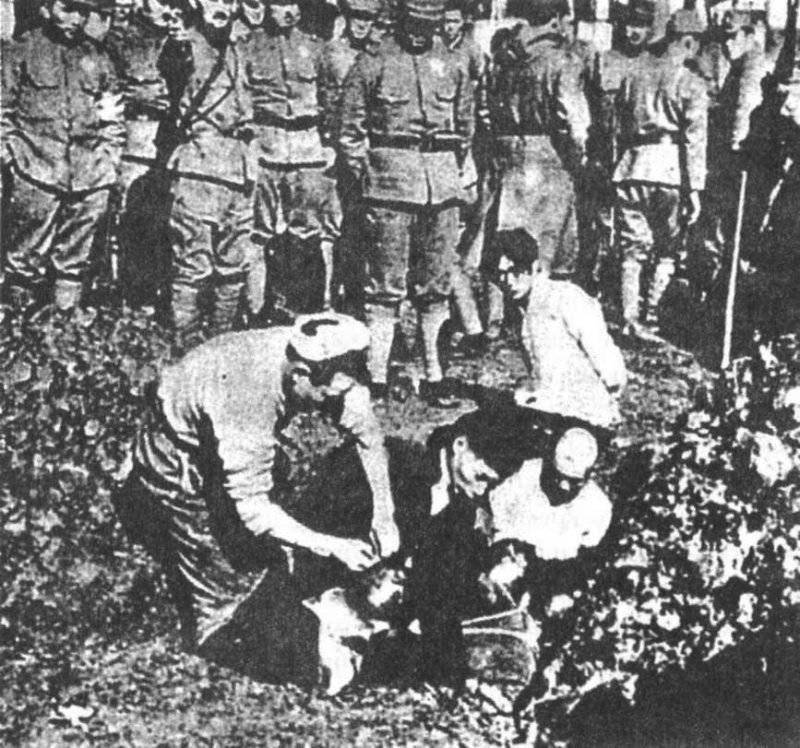
Information